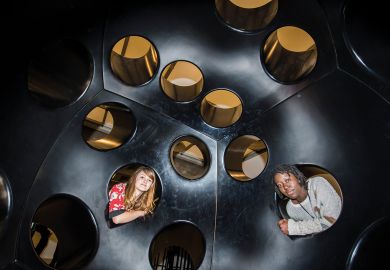As we begin the new year, a new UK government is still settling into Westminster, newly knighted Sadiq Khan is embarking on a historic third term as Mayor of London, and the 696th Lord Mayor of London has taken office in the heart of City. For universities in the capital, this represents a golden moment to influence decision-makers at all levels – not just to advocate for better policies for higher education and research, but to bring academic insight to bear on the full range of government priorities.
London’s higher education landscape isn’t exactly short of highly effective policy institutes. But in the pursuit of impact, university policy institutes can forget an important facet of policy engagement – namely, that Whitehall is not the only place where policy influence and engagement is needed.
Many also follow the tried and tested model of leveraging projects performed by in-house researchers to inform public policy debates. Rather than fostering effective coordination and relationship management to ensure exposure to a breadth and depth of research, this lack of variation in strategy and approach risks heightening competition for airtime with policymakers between individual institutes and overcrowding the landscape.
The new policy institute that I will head, the Finsbury Institute at City St George’s, University of London, has a different focus: the City of London. Despite being key to powering the nation’s economy, as well as influencing regulation for major UK industries, the businesses and professional bodies in the City of London’s Square Mile do not currently have productive partnerships with the university sector. Consequently – and despite their global reach and vast economic heft – they lack the means of tapping into valuable academic expertise.
I am both honoured and energised to take on the task of addressing this gap, harnessing the work of academics from City St George’s and their partners, convening the City’s own thought leaders, and transforming it into practical advice that will make a positive difference to communities locally, nationally and across the globe.
Read Times Higher Education's in-depth look at the rise of policy institutes.
Through my current role as CEO of London Higher – representing over 70 different universities and higher education institutions operating in the London region – I have sought to demonstrate how university research can generate positive real-world impact. This is shown, for example, in the local benefits illustrated by the Civic Map, as well as the national outcomes shown on our Capital Gains map. Both initiatives were inspired by my time as policy adviser to three former UK universities and science ministers, when I saw first-hand the need for stronger communication channels between universities and the outside world, and for ways of working that foster mutual respect, understanding and collaboration.
My vision for the Finsbury Institute, then, is to build a dynamic innovation hub in the heart of the City that both advances cross-disciplinary research and champions its translation into insights that reflect the practical needs and aspirations of surrounding communities. It will be a vehicle not for universities to tell the outside world what to do but to cultivate an environment where researchers, professionals and policymakers can come together to co-create solutions to the complex challenges of our times, helping to power growth and shape a more prosperous and equitable future.
By connecting with business, industry and government in ways that work for them, the institute has the potential to set a new standard in outward-facing impact for the whole UK university sector – powered by feedback, consultation and honest conversations with the people that really matter. Its home in City St George’s School of Politics and Global Affairs will also give it easy access to researchers working at the coalface of contemporary City of London challenges – from economists and accountants to criminologists and political scientists.
I look forward to rolling out initiatives to engage a community of stakeholders yet untouched by other institutions. I also can’t wait to get started collaborating with colleagues, students and alumni from across City St George’s and its local, national and international partners to foster an institute that’s every bit as dynamic as the city it serves.
Diana Beech is CEO of London Higher. From April, she will be director of the Finsbury Institute and associate vice-president of policy and government affairs at City St George’s, University of London.
Register to continue
Why register?
- Registration is free and only takes a moment
- Once registered, you can read 3 articles a month
- Sign up for our newsletter
Subscribe
Or subscribe for unlimited access to:
- Unlimited access to news, views, insights & reviews
- Digital editions
- Digital access to THE’s university and college rankings analysis
Already registered or a current subscriber?









